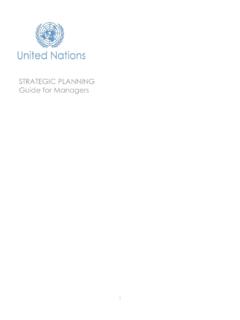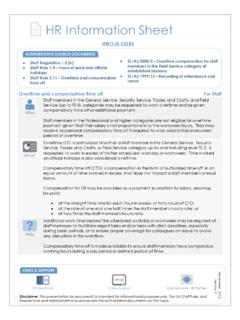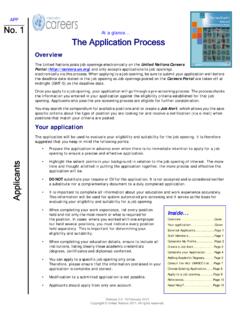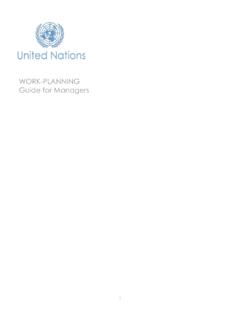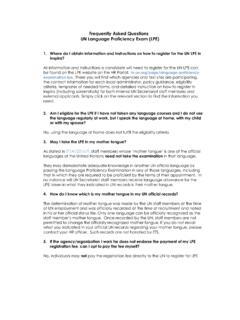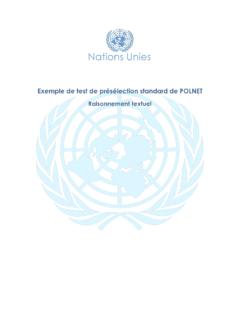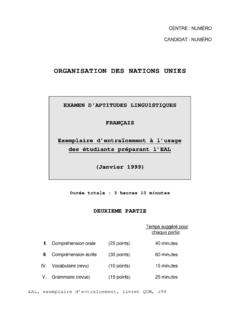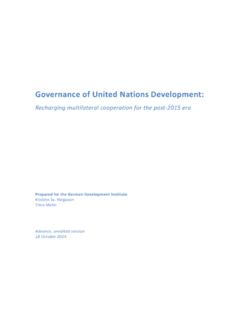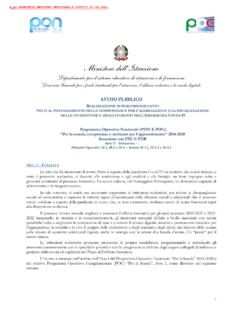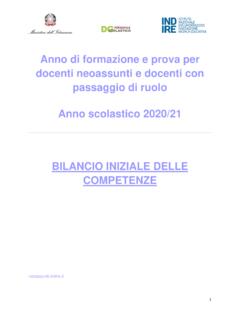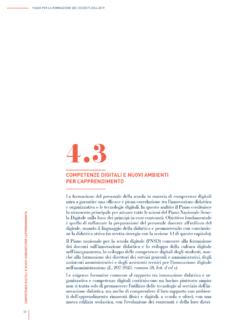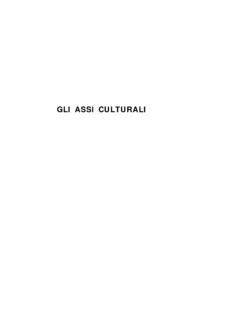Transcription of UN COMPETENCY DEVELOPMENT
1 UN COMPETENCY DEVELOPMENT - A PRACTICAL GUIDE UNITED NATIONSCORE VALUESINTEGRITYPROFESSIONALISMRESPECT FOR DIVERSITYCOMMUNICATIONTEAMWORK VISIONPLANNING & ORGANIZINGACCOUNTABILITYCREATIVITYCLIENT ORIENTATIONCOMMITMENT TO CONTINUOUS LEARNINGTECHNOLOGICAL AWARENESSLEADERSHIPEMPOWERING OTHERSBUILDING TRUSTMANAGING PERFORMANCEJUDGEMENT/DECISION-MAKING 2010 United Nations, all rights reserved. Unauthorized use, duplication, or distribution is strictly prohibited. No part of the contents of this materialmay be reproduced or transmitted in any form or by any means without theexpressed written consent of the United Information contained in this guide is compiled for the convenience ofUnited Nations Sta and is furnished without responsibility for accuracy,and is accepted on the condition that errors or omissions shall not be madethe basis of claim, demand or cause of action.
2 This guide contains examplesdesigned to foster better understanding of the Career DevelopmentComponent of Talent Management. The information and data in this guidewere obtained from sources believed to be reliable and guide will be updated and modifed from time to time. Comments andsuggestions for modifcation of provisions of this Guide or for additionalprovisions should be addressed to the Director, LDSD, OHRM, Department of April Colleagues,It is with pleasure that I introduce DM s new publication, UN COMPETENCY DEVELOPMENT A Practical term COMPETENCY may be defined as a combination of skills, attributes and behaviours that are directly related to successful performance on the job. They are important for all staff, regardless of occupation, function, or UN competencies were launched in 2002, when the Secretary-General commissioned a project to build human resources capacity through the introduction of organizational core values and competencies which are essential for all staff.
3 Further, additional managerial competencies were introduced, required by those who manage the performance of others. These competencies have been used as a foundation for our human resources framework, including systems such as recruitment, placement, DEVELOPMENT and performance guide, an initiative from the Learning, DEVELOPMENT and HR Services Division in OHRM, is meant to serve as a practical, hands-on resource for UN staff members and managers. The Guide allows each individual staff member to take a more strategic approach towards his/her own learning and DEVELOPMENT . It is also meant as a tool to help managers in coaching and developing their team hope that you will, through the COMPETENCY of Commitment to Continuous Learning, embrace the process of self-appraisal thoughtfully, and with an eye towards your professional are committed to being your partners in this PollardAssistant Secretary General for Human Resources ManagementContents 1.
4 Introduction .. 1 I. Creating Your DEVELOPMENT Plan .. 3 II. Identifying Your DEVELOPMENT Needs .. 32. the DEVELOPMENT Activities .. 9 Core Values I. Integrity .. 11 II. Professionalism .. 19 III. Respect for Diversity .. 29 Core Competencies IV. Communication .. 41 V. Teamwork .. 55 VI. Planning & Organizing .. 65 VII. Accountability .. 75 VIII. Client 85 IX. Creativity .. 97 X. Technological Awareness .. 109 XI. Commitment to Continuous Learning .. 117 Managerial Competencies XII. Vision .. 129 XIII. Leadership .. 137 XIV. Empowering Others .. 147 XV. Managing Performance .. 155 XVI. Building Trust .. 163 XVII. Judgement / Decision Making .. 1713. the Un Competencies and oHRM Centrally Coordinated Programmes ..181 IntroductIon1UN COMPETENCY Development2 This DEVELOPMENT Guide has been designed to provide UN Staff Members with guidance on how to develop behaviours and skills within specific UN COMPETENCY areas, through a variety of methods including formal training, on the job DEVELOPMENT , job simulations, observation, feedback, informal coaching, reading, and audio visual references.
5 The Guide will help you create a personal DEVELOPMENT plan tailored to your individual needs. It offers advice on the type of DEVELOPMENT activities available to you in your current job, and also helps you to identify how you can develop in areas that are not tested in your daily work environment. A wide range of suggestions are offered, with the goal of allowing you to select those developmental activities which suit your particular DEVELOPMENT needs and learning style, enabling you to build a more personalized, targeted DEVELOPMENT material is offered at various levels to help you build on current performance or to bridge the gaps if you are looking towards a future career move. The guide has been designed to work alongside the DEVELOPMENT process, and many of the activities and resources referred to within this guide can be accessed through this site.
6 Staff members at all levels within the Organization may find it useful to use this Guide to help set a clear DEVELOPMENT plan following:A recent performance review; Receiving feedback from a manager, colleague, peer or staff member;Input from a coach or mentor; A self evaluation of strengths and weakness, or career aspirations; or,Feedback following an interview. This Guide can also be used by managers as a reference tool to help them support their team members in setting DEVELOPMENT plans, or preparing for a career move. It can also be used to help managers give guidance to their staff members on how they might address any areas of DEVELOPMENT identified during performance review. This can help to ensure that the performance review process remains constructive and focused on building skills for the hope that you find this Guide to be a valuable aid to your future DEVELOPMENT , and that it helps you to fulfill your potential, and achieve your career aspirations within the United Nations.
7 I know I can count on each of you to bring these Compacts to life with real results in the year ahead. They are now there to guide us in addressing the enormous challenges we face. I want the world to see that the United Nations is becoming a more performance-driven Organization that sets clear goals within specific timeframes, communicates them widely, and reports the results openly, Secretary-General BAN Ki-moon 12 February 2010 Compact Signing Ceremony3I. Creating Your DEVELOPMENT PlanThis Guide is designed to help you set a personal DEVELOPMENT plan, and steer your own DEVELOPMENT . Personal DEVELOPMENT is defined as: the DEVELOPMENT of yourself, by yourself, through a deliberate process of learning from experience.
8 It is most effective when DEVELOPMENT needs are clearly assessed, activities are planned, and a structured process is followed for their implementation. This section of the Guide is designed to help you construct a clear, individually tailored DEVELOPMENT plan which will give you the best opportunity for reaching your DEVELOPMENT I. Identifying Your DEVELOPMENT needsFeedback from ColleaguesEffective DEVELOPMENT starts with a sound assessment of DEVELOPMENT needs, which in turn enables plans to target specific areas of behaviour where change is required. Useful sources of information to help assess your DEVELOPMENT needs could include:A recent performance review; Feedback from a manager, colleague, peer or staff member; Input from a coach or mentor; A self evaluation of strengths and weakness, or career aspirations; or, Feedback following a job interview.
9 If you have already received very specific feedback from one of these sources which links to one of the UN competencies, then you may well be able to use that information directly in your DEVELOPMENT plan. However, if the feedback you have received is vague, or you are unclear to which COMPETENCY it relates, or if you do not understand or accept the feedback, then it may be helpful to go back to the person who initially provided that feedback (providing it is feasible to do so) and ask them to clarify and elaborate on their observations. It is important to do this constructively, stressing that your aim is to understand and learn from their feedback to help guide your future DEVELOPMENT , rather than to challenge it. During this discussion, consider asking the following kinds of questions:Can you tell me exactly what I did to leave you with that impression of me?
10 What was the exact situation that I was in when you made that observation? What did I do that you feel was less effective? UN COMPETENCY Development4 Why do you feel that it was less effective? What do you feel I could have done instead? How do you feel that I could best develop my behaviour in this area? Even if you feel that the feedback is unfair, it is best not to challenge it. The aim here is to learn how your behaviour is perceived by others, even if you feel the feedback provider has misread your intentions. Remember that input from others which challenges your own self-perceptions can be extremely valuable in opening you up to new developmental opportunities that you have not previously recognized. self-evaluation In addition to the feedback that you may receive from others, it is helpful to complement this with a self evaluation of your DEVELOPMENT needs.
